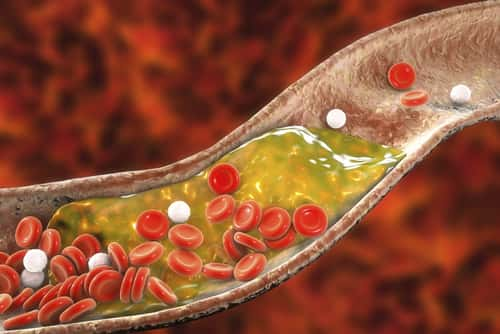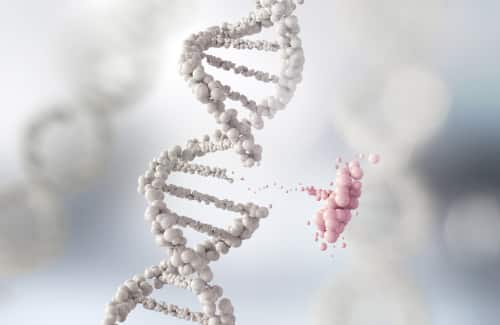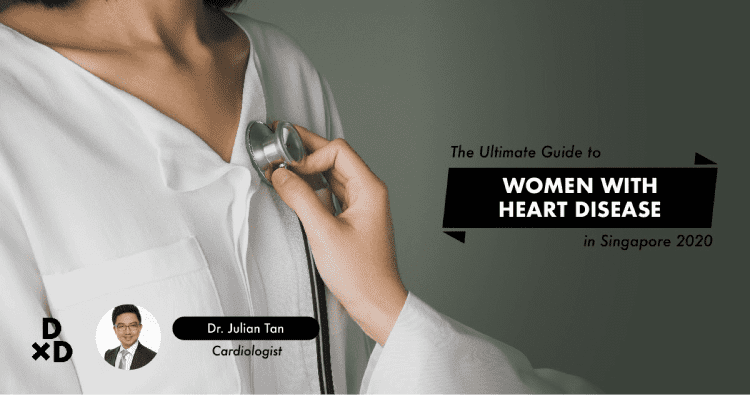Heart disease is not something we like to think about, right?
Unfortunately, many of us in the red alert zone are either unaware, or wait until it’s way too late. Guess you could chalk it up to human nature. As urbanites busy themselves with bustling round and round the hamster wheel that is modern life and continue to fall victim to cardiovascular ailments, it’s very important that we stay sharp when it comes to matters of the heart.
Dr Julian Tan - a cardiologist with a wealth of experience (who likens his speciality to plumbing) - receives numerous questions related to heart health on Human.
Here, he sets the record straight on a few common misconceptions and shares a few important points.
Keep an eye out for signs of blocked heart vessels

Here's something you might have learnt in Biology class (if you weren’t fast asleep, that is); blood is pumped throughout the body through vessels that are powered by the heart.
But what happens when these vessels are more clogged full of fatty deposits than a sink in desperate need of a plumber? This means that blood supply to the heart can get blocked off, and ultimately lead to heart disease.
These are the major symptoms to watch out for:
- Chest pain (angina)
- Shortness of breath
- Heaviness in your chest
- Pain in your jaw or down the arms
- Heartburn
- Nausea
- Vomiting
- Heavy sweating
If these aren’t brought about by that upcoming appraisal at the office or visit from your in-laws, consider them warning signs and get yourself checked immediately.
There's more than 1 way to check for heart disease

Whenever Dr Julian suspects that a patient may have heart disease and blocked heart vessels, he performs a full physical examination along with a number of tests to confirm his diagnosis.
These tests include:
- An Electrocardiogram (ECG) - Records your heart’s electrical activity in order to identify an abnormal heartbeat or damage to the heart muscle.
- Stress test - Evaluates your heart rate and rhythm while you are exercising.
- Echocardiogram - Measures the chambers and heart function using sound waves. It's also able to check your valves and major blood vessels.
- Coronary angiogram – Identifies specific blocked heart vessels and how much narrowing there is.
Angioplasty can be an effective heart treatment for blocked heart vessels
"Angio-what?"
No, that’s not the name of Brad Pitt’s newest spouse.
This treatment involves inserting heart stents to help improve blood flow to the heart muscle.
It can be very effective but it may NOT be the best treatment in several situations. Check with your doc before proceeding.
No, it's not the same as an angiogram
A lot of Singaporeans get confused between the two (we don’t blame you).
So what's the difference? An angiogram is just used to find blockages, while an angioplasty is a treatment. Think of them as ‘search’ and ‘destroy’.
Angioplasty is NOT a cure for heart disease
While angioplasty (like many other treatments) does help to control symptoms, it is not a cure for heart disease.
Want to fix the cause? That, my friend, is the part that is up to you. You’ve probably heard it before but it's time to make important lifestyle changes. These include dietary changes and a proper regimen of check-ups as well as exercise to encourage weight loss.
Where there’s a will there’s a way. Whether you have experienced heart problems in the past or whether you’re a possible candidate for potential heart disease, take the initiative to do something about it today!
How risky is having an angiogram and angioplasty?

Are there risks that come with inserting a heart stent in the short and long run?
Good news! Today’s angioplasties are very safe.
Of course (as with any surgery), minor complications are possible. Bleeding under the skin at the wound site or bruising might occur but these should heal in time.
Other (more serious) complications you should look out for can include damage to arteries or serious bleeding but these are very uncommon.
If you’re still feeling worried, it's best to run through everything with your cardiologist just to be sure.
Treatment for heart disease is Medisave-claimable
According to Dr Julian, there are generally two options to choose from.
1. Withdrawal limit of $500 per Medisave account per year:
Approved chronic diseases:
- Diabetes
- Pre-diabetes (Pre-DM)
- Hypertension
- Cholesterol and lipid disorders
- Stroke
- Ischaemic Heart Disease
2. Withdrawal limit of $600 per Medisave account per year:
- Outpatient MRI scans
- CT scans
- Ultrasound scans
Heart disease can be inherited

Much like diabetes, your chances of a heart attack can increase if your parents or siblings have suffered from cardiovascular disease.
What sucks even more is that you're still prone to heart disease - even if you have a healthy diet and exercise regularly (bummer, right?)
What can you do about it? Get screened regularly for risk factors if you belong to this group.
Read more: The Ultimate Guide to Cardiovascular Risk Reduction (2020)!
Significant cholesterol disorders can also lead to heart disease
You probably know the drill. Extremely high cholesterol levels can = heart disease. However, (another bummer alert) Singaporeans that fall within the group of significant cholesterol disorders often have unusually high cholesterol that can't be lowered by lifestyle or diet changes alone.
Keep an eye out for your low-density lipoprotein (LDL, or bad cholesterol) levels.
These should be lower than 100 and if they are not, it's time for some pre-emptive measures.
Don't forget the usual suspects, aka multiple risk factors
Consider the various other common key factors that link to heart disease.
These include high BMIs which are often indicators of increased risk of heart disease, as well as high blood pressure (a reading of 140/90) and high blood sugar levels (since many Singaporeans have diabetes).
Additionally, a larger than average waist circumference is also a major factor that could potentially lead to heart disease and not to mention, a whole bunch of other health problems.
Psst, just so you know, normal measurements are less than 90 cm for women and less than 80 cm for men.
Follow through with your cardiac rehab programme

Please don't make the same mistake twice. If you have been exposed to heart issues in the past and have just been through an angioplasty, it's important to note that you aren't out of the woods just yet.
Yup. It's time to focus on making some solid lifestyle changes.
Kind of like AA, you’ve got to work the steps.
Getting the best results after your angioplasty really depends on your willingness to see the cardiac rehab programme through:
- Create a plan to stop smoking.
- Try to lose weight, even if it’s only a few kilos. Even a 3 to 5 kg loss can significantly reduce your risk of heart disease.
- Make exercise a part of your daily routine. Regular physical activity releases hormones such as endorphins and vasodilators that help you maintain healthy blood vessels.
- Monitor your blood pressure, cholesterol, and blood sugar. Also, be sure to limit your sodium intake and eat healthy foods.
- Take all medications prescribed by your doctor.
- Visit your doctor regularly.
Finally, you should aim to return to work and resume all other regular activities sooner - this lowers your chances of having further chest pain and anxiety (unless, of course, you have an anxiety-inducing boss).
Whether you have experienced heart problems in the past or whether you’re a possible candidate for potential heart disease, you can make a difference.
Take Dr Julian’s advice to help ensure your ticker is wound upright.
Find out more about what Dr. Julian Tan thinks of Heart Disease in Women!
Ever wanted to ask a health question to a specific specialist in Singapore? Human Sessions are when these expert doctors answer all your questions, for free!
You can Ask A Doctor right away, or view the complete list of Human Sessions here.







